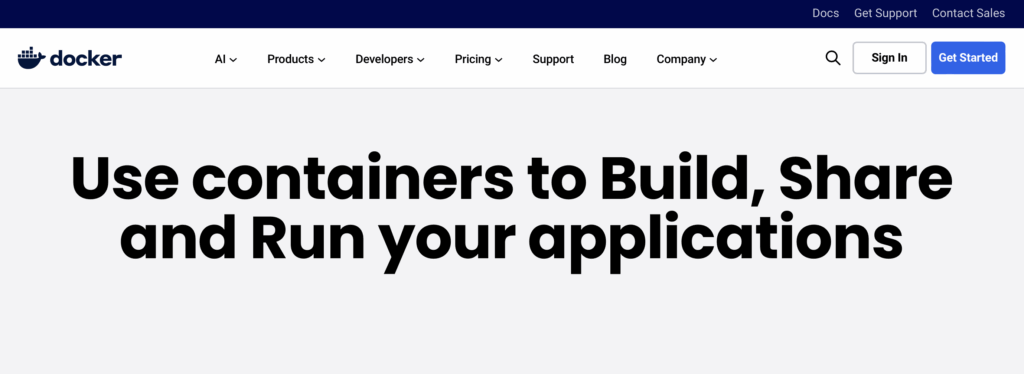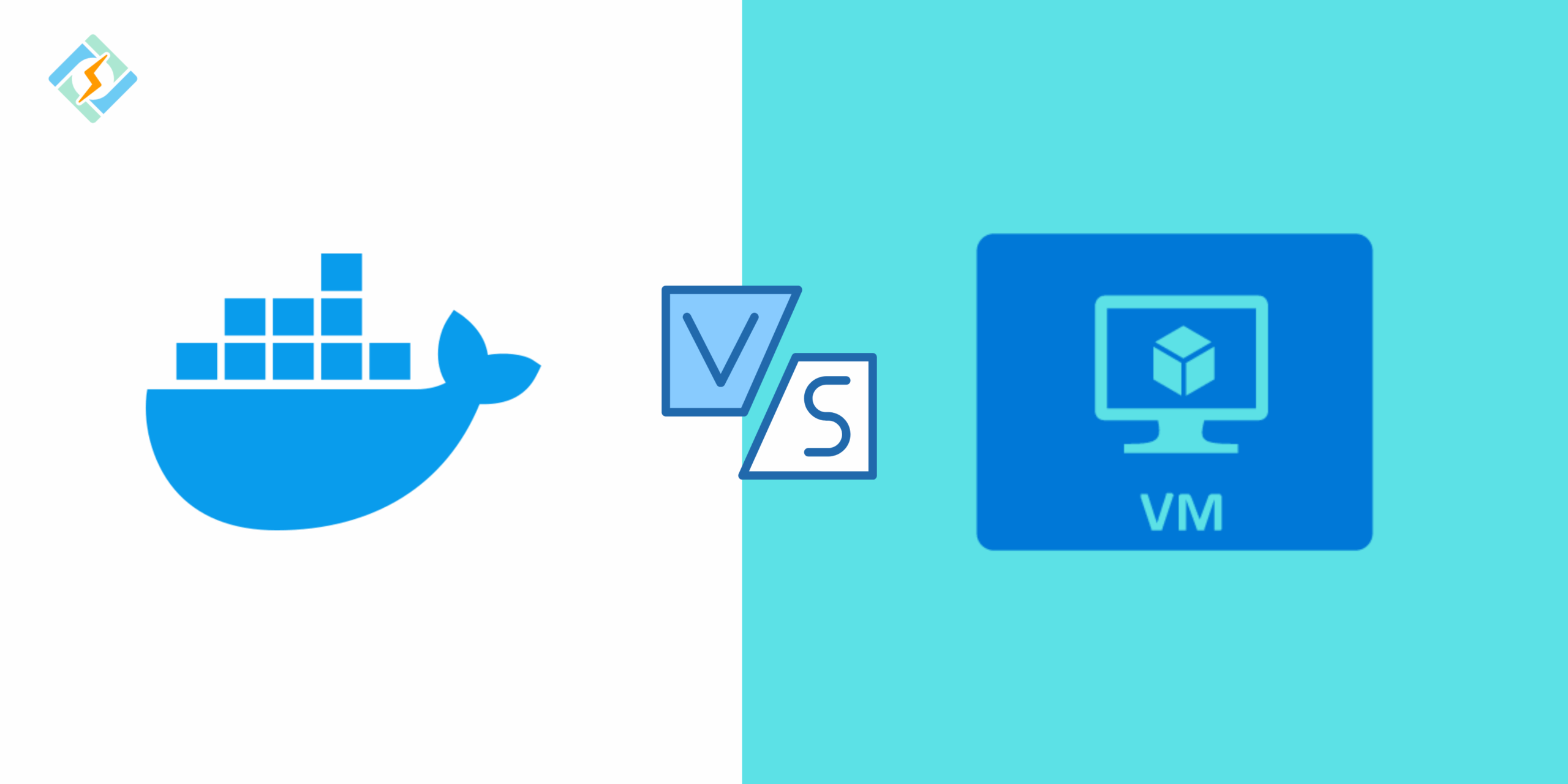In the modern world of software development and IT infrastructure, efficiency, scalability, and flexibility is a crucial step. Two popular options include Virtual Machines (VMs) and Docker containers, which both play a central role in how the applications are built, tested, and deployed.
Both enable you to isolate workloads, run multiple environments on the same hardware, and optimize resource usage.
However, both have super different approaches, VMs emulate the entire operating systems, while Docker containers share the host system’s kernel to deliver lightweight, portable environments.
Understanding Docker vs Virtual machine allows you to break down the two and figure out the best possible approach for your team!
What Is a Virtual Machine?
A Virtual Machine (VMs) is a software-based emulation of a physical computer. It basically runs on the top of a hypervisor, which allows it to run multiple VMs to share the same physical hardware.
Each VM includes its own:
Get exclusive access to all things tech-savvy, and be the first to receive
the latest updates directly in your inbox.
- Operating system (OS)
- Virtual CPU, memory, storage, and network interface
This essentially makes a Virtual Machine completely isolated from all sides. So you could run two different VMs in parallel on the same host machine. VMs are ideal for scenarios that need complete isolation from the system or to run multiple servers on the same hardware.
What Is a Docker Container?

A Docker container is a lightweight, portable unit that packs an application and all of its components into a package. Unlike VMs, containers do not require a separated operating system, but they share the same host OS kernel.
This makes containers:
- Much faster to start and stop
- Smaller in size compared to VMs
- Easy to move across environments (from a developer’s laptop to a testing server to the cloud)
Docker provides a platform and a suite of tools to manage their containers, making it a pinnacle of modern DevOps and cloud native development.
Docker Containers vs Virtual Machines: How They Work
One of the main differences between Docker vs Virtual Machine lies in how they use up the resources:
- Virtual Machines: VMs run a full guest operating system on a hypervisor, each VM needs its own OS, making it more resource intensive.
- Docker Containers: They share the same OS as the kernel, but isolate the application in the form of a container, making it lightweight, efficient, and portable.
Key Differences Between Docker vs Virtual Machines
Although Docker containers and virtual machines share the goal of running isolated applications, they both are different in terms of how they allocate resources, handle security, and scale in production environments. More differences are:
| Aspect | Virtual Machines (VMs) | Docker Containers |
| Performance | Slower to start since each VM boots a full OS; higher CPU and memory overhead from hypervisor. | Launch almost instantly by sharing the host OS kernel; faster and efficient for microservices, CI/CD, and short-lived workloads. |
| Resource Utilization | Each VM includes its own OS, consuming more resources; running many VMs can quickly use up RAM and storage. | Lightweight (often just MBs); multiple containers can run on the same host with minimal overhead. |
| Security | Stronger isolation—each VM runs a separate OS, so a compromise in one VM doesn’t affect others. | Share the host OS kernel, so more vulnerable if the host is attacked; mitigated with tools like AppArmor, SELinux, seccomp, and best practices. |
| Portability | Portable across hypervisors and platforms, but large size (GBs) makes them harder to move. | Highly portable—container images run consistently across laptops, servers, and cloud environments. |
| Scalability | Scaling means provisioning new OS instances, which is slower and resource-heavy. | Built for scalability—tools like Kubernetes or Docker Swarm can spin containers up/down in seconds. |
Use Cases: When to Use Docker vs Virtual Machines
Here are some of the most widely used use cases for the two:
Use Virtual Machines (VMs) when:
- Running multiple different operating systems on the same resources.
- Hosting legacy applications that need a full OS environment.
- Applications that need complete isolation for security.
- Data centers and organizations that already rely on VM infrastructure.
Use Docker containers when:
- Speed and scalability are the biggest priorities.
- CI/CD pipelines where the apps are built, tested, and deployed.
- Cloud-native applications that need to be consistent across all environments.
- Workloads that need high density.
Advantages and Limitations of Docker Vs Virtual Machine
Both come with a set of advantages and disadvantages, Virtual machines have strong isolation and security, it can run on all OS and hardware, and it is the best option for resource-heavy apps. On the other hand, it requires a higher overhead, has slower boot time, and is less efficient in resource utilization.

Docker on the other hand is super lightweight and fast to set up, it is portable, efficient, and is the best choice when you scale the applications dynamically. It offers weaker isolation as compared to VMs, it is dependent on the host OS, and requires additional orchestration tools.
Docker Vs Virtual Machines – the Best Fit For Your Team; Wrapping Up
Virtual machines and Docker containers are both powerful tools but they solve a different problem for different demographics. VMs enable full isolation and the other offers a light weight, portable, and scalable solution.
The best choice will be dependent on factors, such as workload, project intensity, and the level of flexibility that your development environment requires.
FAQs
Which is more secure: Docker vs Virtual Machines?
Virtual Machines generally provide stronger isolation because each runs its own OS. Docker containers share the host kernel, but security can be hardened with tools like AppArmor, SELinux, and seccomp.
Which is more resource-efficient: Docker vs Virtual Machines?
Docker containers are more resource-efficient since they are lightweight and share the host OS. VMs consume more CPU, RAM, and storage due to the overhead of separate operating systems.
Which is better for production: Docker vs Virtual Machines?
It depends on the workload. Containers are excellent for cloud-native, scalable apps, while VMs are preferable for workloads needing full isolation, compliance, or different OS environments.



